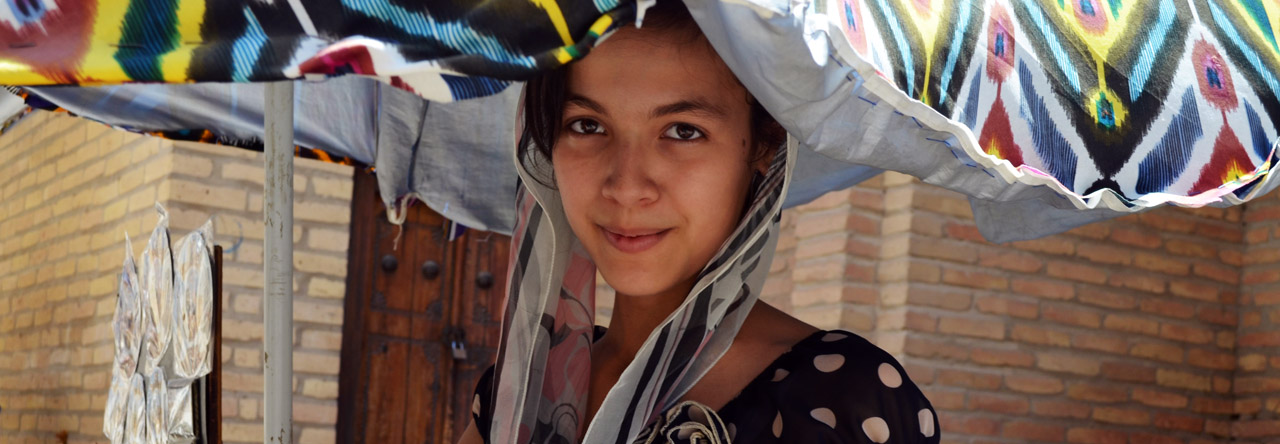In the middle of June, Bukhara embraces one of the most ancient arts which still survives in the Uzbek tradition: the Suzani. The name Suzani comes from the Persian word “Suzan” which means “needle”. The Suzani tradition was born in Central Asia in the XIV century. Suzani reaches its climax during the Silk Route, the commercial and cultural route between Europe, Turkey, China and the muslim world as well as the destiny of merchants, caravaneers and travellers.
The restaurant and atelier-showroom from Rakhmon Toshev offers a traditional Uzbek menu and a sort of sewing class. The centre, called Rakhmon Toshev as the owner, has seen his popularity grow due to the article Ouzbékistan: la caravane des artisans published by Marie-Angélique Ozanne in the newspaper Le Figaro. Rakhmon Toshev is an embroidery master with more than 35 years of experience and her daughter, Nasiba, takes the role of the hostess of the day.
“D’abord tu fais là une boucle comme ça, après tu prends le milieu de la file e voilà c’est fait une petite boucle. Ça marche, ça marche sans problème. On bordait le granade, d’accord?”. Nasiba explains how to sew the suzana for the first time and she does it in a perfect French. Her working day is 13 hours long and she dedicates time to sewing and to the restaurant. She is the mother of Dior, a 3 year old child who lives at the village with his grandmother. Every night, Nasiba drives 15km by car to be able to see his baby. Then, she continues sewing at home. When she wakes up in the middle of the night, she sews a little bit, gets relaxed and goes back to bed.
What is happiness for you?
When I finish the Suzana I become really happy -laughs-. When my child is healthy I am also very happy because when he gets ill I am sad and I am not willing to eat anything. Then, I ask God for my child to be always healthy and that he helps me to have enough money to make my family happy. This is my luck, my happiness.
(Nasiba, Uzbekistan. 30th of June, 2015)



Leave a Reply